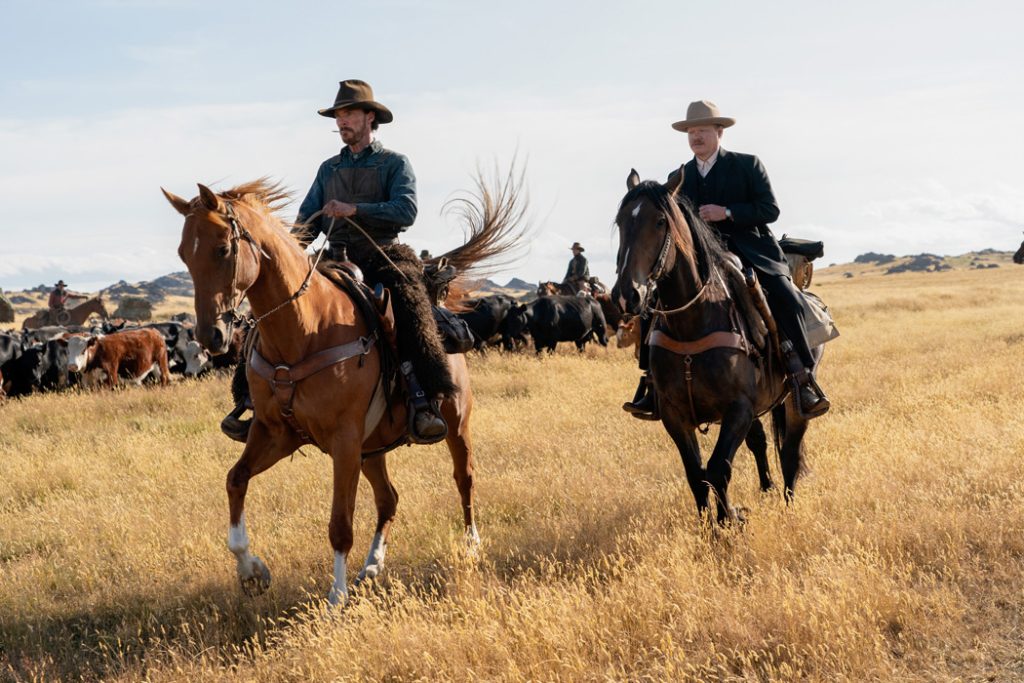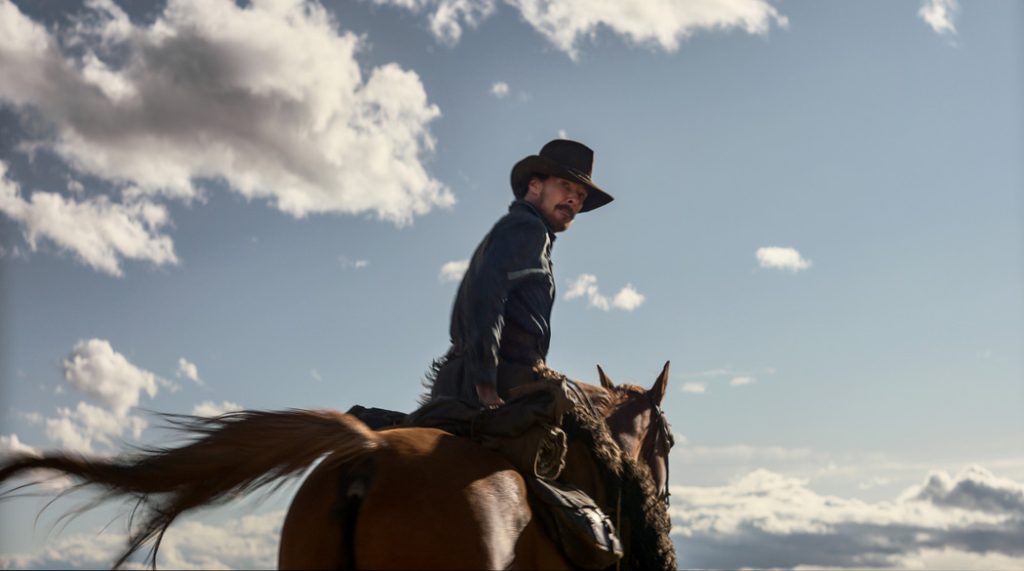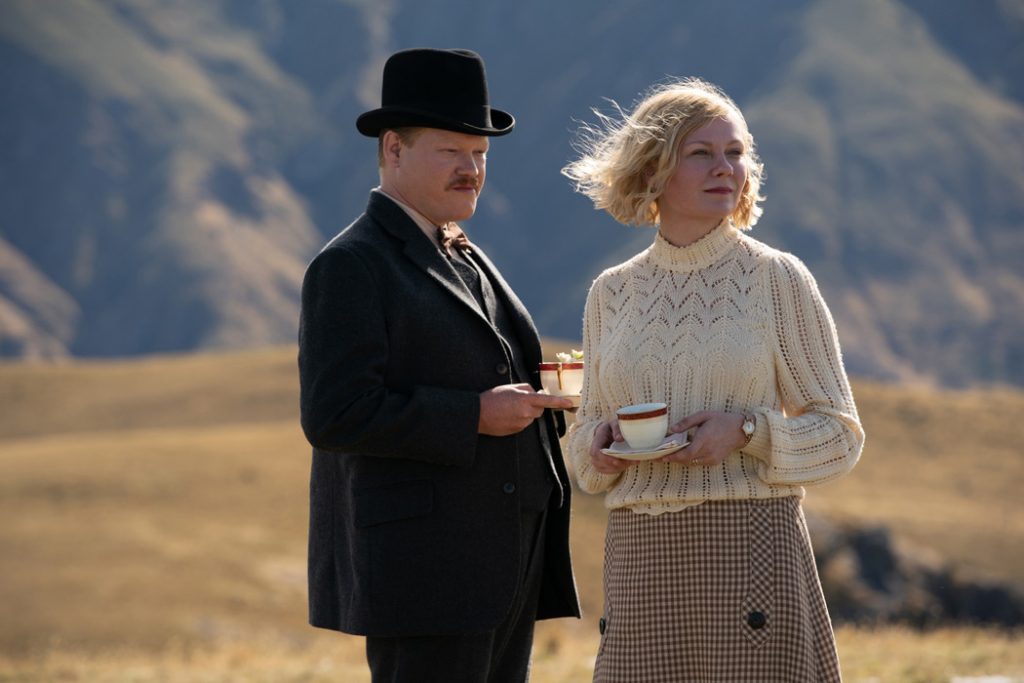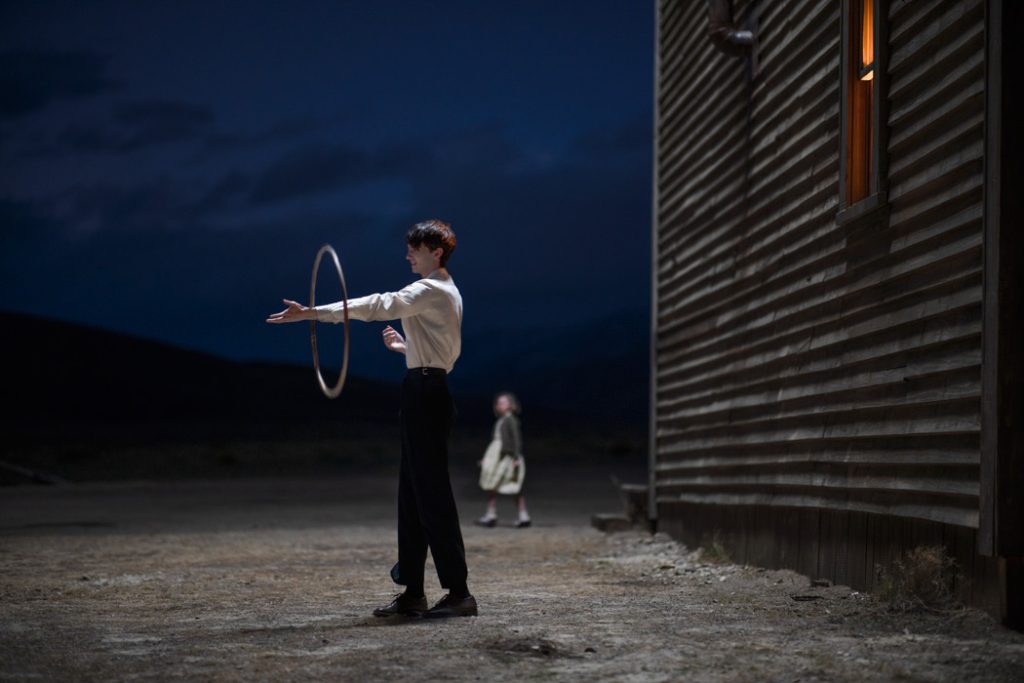
Deliver my soul from the sword, my darling from the power of the dog. —Book of Psalms, Psalm 22
Benedict Cumberbatch’s wide repertoire of characters includes Sherlock in the PBS Masterpiece series, Thomas Edison in The Current War, and Dr. Strange in The Avengers. To which he now adds Phil Burbank, a cattle rancher in 1925 Montana. In The Power of the Dog, Cumberbatch puts his crisp London-speak on sabbatical to master a Western drawl. And like every role Cumberbatch portrays, he lives it.

Phil and his brother George (Jesse Plemons) grew up with the privileges of wealth and education. Their ranch sits on a vast, scenic property, boasting a grand home maintained by housekeepers. George manages the business side while Phil lives the rancher’s life. So . . . all is well for the Burbanks? Hardly.
The brothers are opposites who barely tolerate each other. George is a kind, reserved gentleman, while Phil thrives on dominating and humiliating people. George is short, round, and overweight, but always looks scrubbed and dressed for an opera. Phil dresses his tall, lean, sturdy build in soiled work clothes, flaunting the dirt and sweat that signify his masculinity.
Phil studied the classics at Yale, but spends his days dressed in chaps, managing the cowhands and herding, breeding, and castrating cattle. In his downtime he plays the banjo, bathes in the pond, and retreats to his secret shelter in the woods. The rest of his time is dedicated to verbally assaulting anyone he considers beneath him, which is pretty much everyone, including George.

And then there’s Rose (Kirsten Dunst), the widowed innkeeper who cooks for the cowhands. Her timid nature makes her one of Phil’s prime victims. And Rose’s teenage son Peter (Kodi Smit-McPhee), a tall, lanky, effeminate boy, is Phil’s favorite target, which crushes Rose and Peter. The people in Phil’s orbit are no match for such a toxic man. Or are they?

The invisible character looming in the background is Phil’s idol: the deceased Bronco Henry. Phil attributes everything he knows about ranching to this self-taught man. Phil’s all but mythical hero was the ultimate cowboy, the exceptional teacher, the consummate manly man who could do no wrong. And might we ask, would we like Bronco Henry? Was he kind? Respectful? Or was he Phil’s ideal of the ferocious alpha male? Just wondering…
Director and screenwriter Jane Campion (The Piano) filmed The Power of the Dog on her home turf in New Zealand. And while Campion was not the first to tackle this nuanced tale, she was the first to succeed in capturing it on film. The content is adapted from Thomas Savage’s 1967 book, The Power of the Dog, inspired by Savage’s own life. The character of Peter is the film version of Savage. And Savage encountered the real “Phil” when he and his mother moved to Montana after she remarried. The brother of Savage’s new stepfather was Yale educated, a champion at chess, and a master at bullying.
And what about Peter? He was a keen observer and an artist. He loved to read. He was a student of medicine. And most of all, he felt responsible for his widowed mother. As the film opens, he narrates this mission statement: “When my father passed, I wanted nothing more than my mother’s happiness. For what kind of man would I be if I did not help my mother. If I did not save her.”
Finally, kudos to Radiohead guitarist Jonny Greenwood, film-score maven extraordinaire. With the simple picking of acoustic guitar strings, his opening score is arresting. The notes and frantic tempo suggest an urgent message, an alert that something is wrong, and it’s gaining on us.
That message speaks to Peter’s opening statement, to the cryptic film title (which you can Google for a variety of translations), and to the heartless man who preys on the weak. The Power of the Dog is a pensive saga about what people do to emotionally survive. There is more to the story than meets the eye. Focus on the details, they will lead the way.
